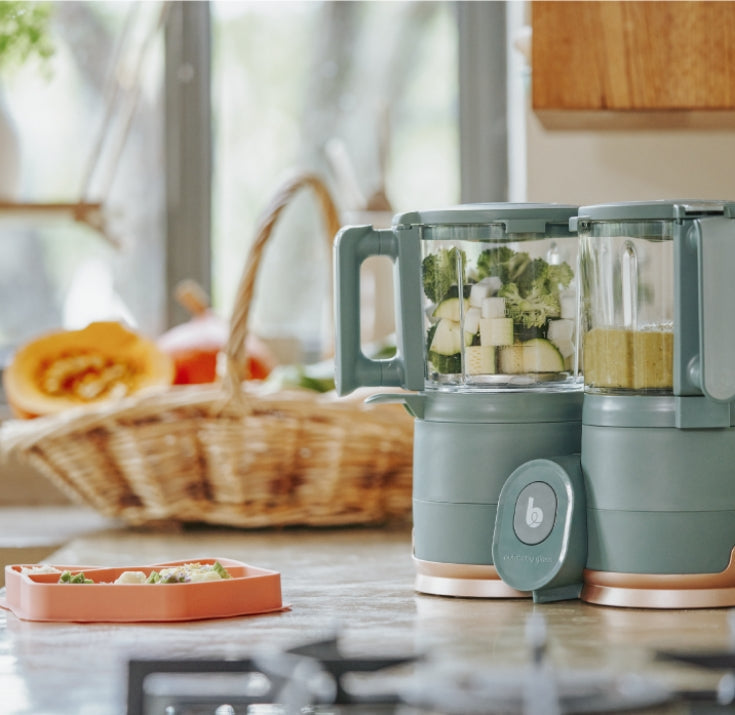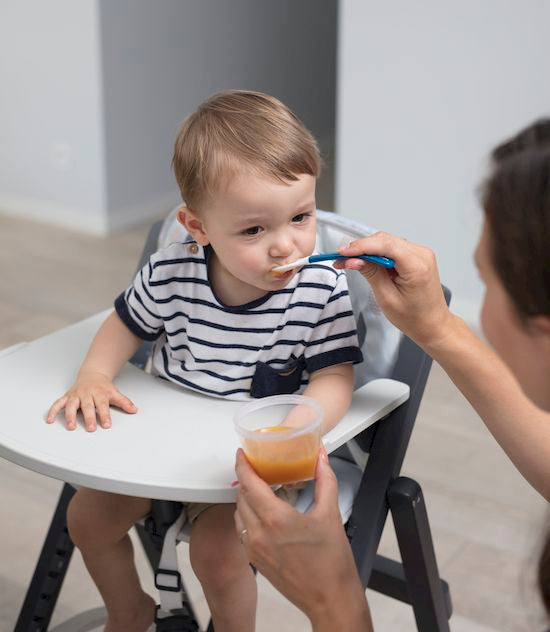Should I continue breastfeeding when I start weaning?
Yes, definitely. Breastmilk is especially important alongside solids in early weaning as its protective properties may help to reduce the risk of diarrhoea, vomiting or allergic reactions when new foods are introduced. Breastfeeding will continue to protect your baby from infections for as long as you continue feeding them.
Do I need to give my baby vitamins?
It is a national recommendation that all breastfed babies should be given a vitamin supplement from 6 months. In some cases, a specialist may advise this earlier than 6 months. It should contain vitamins A and D as these nutrients are not too widely available from food. Most baby vitamin preparations will contain these. For babies who are formula fed, or receiving both breast and formula milk, they should have a vitamin supplement if their formula intake is less than 500mls per day.
What happens if my baby stops wanting to feed?
Sometimes babies go through phases of being less interested in their milk. It may be because they’re enjoying solids too much and their tiny tummy is getting full up. If your baby seems less interested in their feeds, try adding more milk to their cereal or other foods such as mashed potato. Or make sauces for pasta or vegetables (e.g. macaroni or cauliflower cheese). Experiment with your timings as babies won’t take much milk if they’re either too full or too tired. If milk intake falls below 500mls/day then a baby vitamin supplement is recommended (see no 2.)
How will my baby’s sleep be affected?
Parents sometimes say their baby’s sleeping improves once they have started solids. But there is no real evidence for this. Sleeping and eating should be regarded as entirely separate behaviours. Babies should not be waking, or woken for, night feeds once weaning has been established.
Won’t giving them water just mean they don’t want milk?
Drinking water should have no impact on a baby’s appetite as it has no calorie value. Most babies probably won’t drink great quantities of water during the early months of weaning. To start with, it is more about getting them used to the taste and to using a cup, rather than quenching thirst as they usually get enough fluid from their food and milk.
How do I ensure they eat enough?
Many parents make the mistake of thinking their baby needs to eat more than they actually do. However babies are very good at self-regulating, meaning that they eat when they are hungry and stop eating when they are full. They are far better at this than older children and grown-ups! It is always a good idea to give babies small amounts to start with, then if they still seem hungry offer more. If you still feel unsure, checking your baby’s weight every few months is a useful way to monitor if they are taking in what they need.
What will happen to their nappies when I introduce solids?
There will usually be some changes to baby’s poo when they start solids – it may become runnier, lumpier, smellier or a different colour! But these changes are perfectly normal and things should settle down once their digestive system has become more used to the food. If you ever feel worried, or find blood in your baby’s nappy, make an appointment to see your GP.
Feature by Julia Wolman RNutr.
Registered Nutritionist: www.juliawolman.co.uk / www.facebook.com/TheFamilyFoodCoachUK/






Leave a comment
This site is protected by hCaptcha and the hCaptcha Privacy Policy and Terms of Service apply.